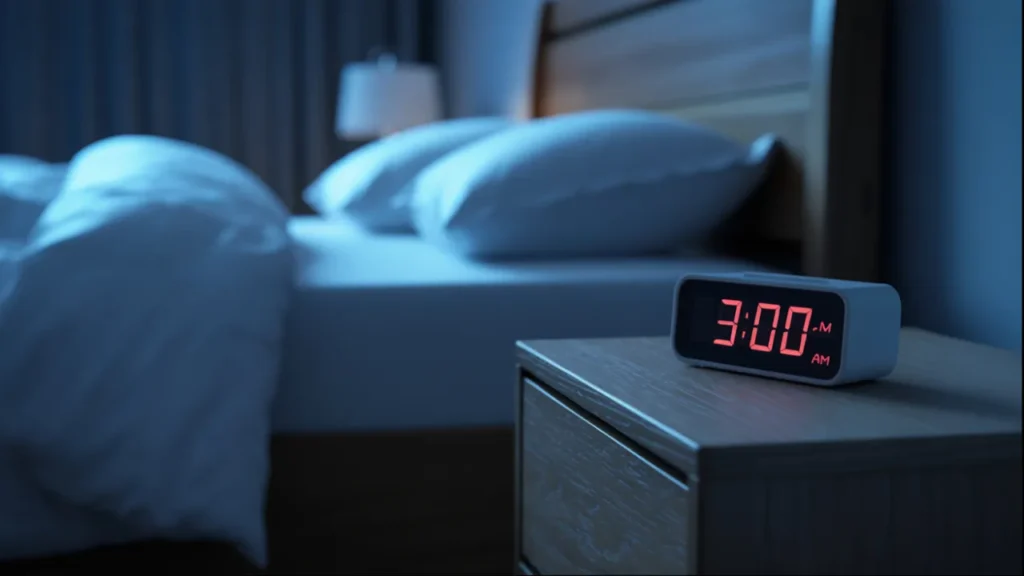Anxiety and Brain Fog
Anxiety and brain fog often show up together, draining mental energy and disrupting everyday life. The mix of cognitive impairment, emotional overload, and physical symptoms makes it hard to think clearly. If you are struggling, consider seeking anxiety treatment.
Understanding this connection is key to improving attention, memory, and quality of life. At Revival Mental Health, we guide patients through evidence-based therapy and psychiatry services to relieve anxiety and restore mental clarity.
What Is Brain Fog?
Brain fog is not a medical diagnosis, but it’s a common symptom in those with chronic stress, anxiety disorder, and major depressive disorder. It involves forgetfulness, slow thinking, and poor working memory.
People often describe it as mental haze, difficulty concentrating, or feeling “off.” This condition is tied to both physical and psychological health factors, including sleep deprivation, nutrient deficiency, and inflammation.

How Anxiety Impacts the Brain
Anxiety affects the central nervous system and raises adrenaline levels, which increases heart rate and activates the body’s fight-or-flight mode. This response helps in emergencies but causes harm when prolonged.
Chronic stress and anxiety lead to excess cortisol, damaging brain regions like the hippocampus and prefrontal cortex. These areas are responsible for learning, memory, and decision-making.
Brain fog worsens with prolonged exposure to stress hormones. Neurology research shows that this cognitive load slows mental processing and reduces working memory accuracy.
Symptoms of Anxiety-Induced Brain Fog
People with anxiety-related brain fog often report these cognitive and physical symptoms:
Cognitive Impairment
Anxiety floods the brain with negative thoughts and reduces attention. This weakens problem-solving, increases forgetting, and affects communication skills.
Headaches and Migraines
Tension headaches and migraines often result from sleep deprivation and overstimulation. Light sensitivity or eye pain may also appear alongside anxiety or social anxiety.
Panic Attacks and Confusion
After a panic attack, many experience mental fatigue and confusion. Adrenaline crashes can lead to temporary cognitive shutdown and slower reflexes.
Physical Conditions That Worsen Brain Fog
Brain fog is not only caused by mental health issues. Physical illness, inflammation, and medical treatments can also impair cognition.
Chemotherapy and Breast Cancer
Breast cancer patients undergoing chemotherapy frequently experience cognitive decline called “chemo brain.” This affects working memory, visual attention, and verbal fluency.
Caregivers of patients undergoing treatment may also experience chronic stress and brain fog. The emotional and physical toll impacts the immune system and nervous system.
Autoimmune and Inflammatory Diseases
Conditions like rheumatoid arthritis, psoriasis, psoriatic arthritis, and ulcerative colitis trigger systemic inflammation. This neuroinflammation can disrupt brain function and reduce alertness.
Chronic inflammation is also linked to anxiety, depression, and dementia. Treating the root inflammation can relieve brain fog and improve overall health.
Vitamin Deficiency and Nutrition
B vitamins, folate, and iron are essential for healthy brain function. Deficiencies can lead to fatigue, mood swings, and cognitive decline.
Nutrition plays a vital role in managing anxiety and improving concentration. A lack of antioxidants, protein, or hydration can lower mental sharpness and immune strength.

Diabetes and Metabolism
Type 2 diabetes and blood sugar imbalances impact the brain’s energy supply. People with diabetes or obesity often experience higher cognitive load, slower reaction time, and impaired memory.
Obesity-related inflammation also affects the gastrointestinal tract, heart rate, and brain chemistry. Managing weight through healthy meals and physical activity can reduce these risks.
Sleep, Technology, and Cognitive Overload
Sleep Deprivation and Sleep Hygiene
Lack of sleep is one of the fastest ways to impair brain function. Poor sleep hygiene causes cortisol spikes, leading to impaired focus, irritability, and delayed learning.
Practicing good sleep hygiene—like reducing screen time, cutting caffeine, and establishing a bedtime routine—can lower anxiety and reset the brain.
Technology and Advertising Overload
Frequent screen use increases mental fatigue. Advertising, notifications, and endless scrolling contribute to attention problems and anxiety symptoms.
Too much technology input raises stress hormones and reduces time for diaphragmatic breathing, physical activity, or quality sleep.
Visual and Sensory Triggers
Some people experience visual impairment or sensitivity to light and sound when anxious. This may stem from overstimulation of the nervous system.
The nose and eye nerves, linked to the parasympathetic nervous system, may react to environmental stressors, triggering migraines or dizziness during panic episodes.
Common Mental Health Conditions That Include Brain Fog
Major Depressive Disorder
Depression includes emotional and cognitive symptoms like suicidal ideation, hopelessness, and slowed thinking. Patients often describe low motivation and mental fatigue.
Antidepressants may help reduce symptoms, but nutrition, therapy, and sleep also play major roles in recovery.
Generalized Anxiety and Social Anxiety
Generalized anxiety disorder causes excessive worry about various aspects of life. Social anxiety creates fear in public or group settings, leading to mental blocks, memory lapses, and poor communication.
Both conditions can result in avoidance, panic attacks, and long-term brain fog without proper management.
Bipolar Disorder and Seasonal Affective Disorder
Mood fluctuations in bipolar disorder often cause shifts in cognition. During depressive episodes, fog and slowed processing are common.
Seasonal affective disorder, triggered by low sunlight exposure, also affects sleep, mood, and brain chemistry. Light therapy and physical activity may help boost energy and improve focus.
Effective Treatments for Anxiety and Brain Fog
Revival Mental Health offers integrated therapy and psychiatry services designed to improve brain function and reduce anxiety symptoms.
Cognitive Behavioral Therapy (CBT)
CBT addresses thought distortions that lead to chronic stress and mental exhaustion. It helps patients develop better coping skills and reduce negative behavior loops.
Therapists may use CBT to improve problem-solving, reduce rumination, and restore confidence in attention and memory.
Mindfulness and Diaphragmatic Breathing
Mindfulness practices like meditation and diaphragmatic breathing support the parasympathetic nervous system. This helps balance cortisol, reduce adrenaline, and calm the mind.
Incorporating breathwork during anxiety spikes improves physiological control and supports emotional stability.
Psychiatric Evaluation and Medication
A psychiatrist may recommend antidepressants or anxiolytics for anxiety disorder or major depressive disorder. These medications can stabilize neurotransmitters and improve brain function.
Regular evaluation ensures the correct dosage and helps track any side effects such as cognitive fog or sedation.
Group and Family Therapy
Support groups and family sessions help improve social communication, reduce isolation, and enhance quality of life. Caregivers can also learn coping strategies to manage their own stress.
Lifestyle Changes to Boost Mental Clarity
Daily habits influence both mental and physical energy. Use these strategies to manage anxiety and sharpen cognition:
- Eat meals rich in antioxidants, healthy fats, and protein.
- Supplement with b vitamins and folate when medically appropriate.
- Engage in regular exercise to improve blood flow and reduce chronic inflammation.
- Practice yoga or stretching to relax muscles and regulate breathing.
- Drink water consistently to support the brain and gastrointestinal tract.
- Reduce caffeine, alcohol, and processed foods.
- Limit technology and advertising exposure during rest periods.
- Create a sleep hygiene plan that includes a dark room, stable schedule, and minimal screen time.
- Use stress management tools such as journaling, podcasts, or guided meditation.

These actions can reduce anxiety, support immune health, and improve brain function over time.
When to Seek Professional Support
If anxiety and brain fog interfere with daily tasks or lead to suicidal ideation, contact a licensed mental health provider. Persistent symptoms may signal a more serious mental health condition or undiagnosed medical issue.
Revival Mental Health offers individualized care using therapy, psychiatry, and neuroscience-informed approaches. We accept most health insurance plans, including Medicare, and serve patients facing dual diagnoses involving physical and mental health conditions.
FAQs
1. Can psoriasis or psoriatic arthritis affect brain function? Yes, both conditions involve inflammation that may contribute to neuroinflammation and brain fog. Stress and pain from these conditions also worsen anxiety.
2. How does cognitive load impact daily life for people with anxiety? High cognitive load makes it difficult to manage multiple tasks, leading to frustration, distraction, and fatigue. It reduces decision-making ability and memory retention.
3. Is there a link between gastrointestinal problems and anxiety fog? Yes, anxiety impacts the gastrointestinal tract through the gut-brain axis. Poor digestion, bloating, or discomfort can further impair focus and increase stress levels.
4. Are people with visual impairment more vulnerable to anxiety-related confusion? They may be, especially in overstimulating environments. Sensory strain and limited environmental cues can increase anxiety, stress, and cognitive fatigue.





